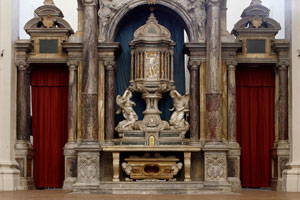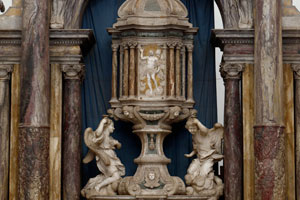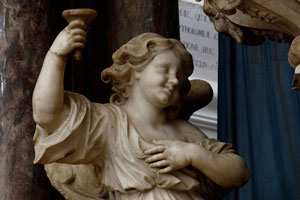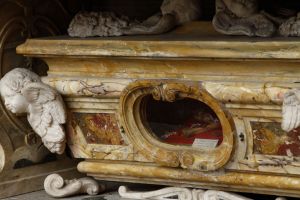The Church of Sant’Agostino
The Eigh Altar
The focal point of the church is the place where Christ’s sacrifice is commemorated. The Lord gives himself to us with his body and blood, kept in the tabernacle. On a slightly higher level than the nave, so that it can be easily seen by all, the altar was made completely of marble by the sculptor Flaminio Del Turco in 1608 on a commission from the Sienese nobleman Cristofano Chigi. In the upper part of the altar, seated on either side of the broken pediment, are two allegorical figures representing Charity, with two children in her arms, and Faith, holding the cross in her left hand and the chalice with the Host in her right, sculpted by Fulvio Signorini. Above the altar table is the majestic ciborium, as specified by the Ordinationes of the Hermits of Saint Augustine drawn up under Pope Alexander IV, which established that in all churches of the order, the Body of Christ had to be kept in a ciborium placed above the high altar. Enriched by two candle-bearing angels on the sides who look towards the image of the risen Christ, it was made around the end of the seventeenth century by the Mazzuoli family of Sienese sculptors. Beneath this, set into the marble steps above the altar table, is visible the ciborium door; on it is engraved the chalice of the Eucharist, made at the same time as the altar itself. Under the marble slab of the table, inside a marble sarcophagus whose four . . .






